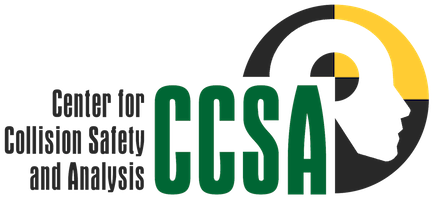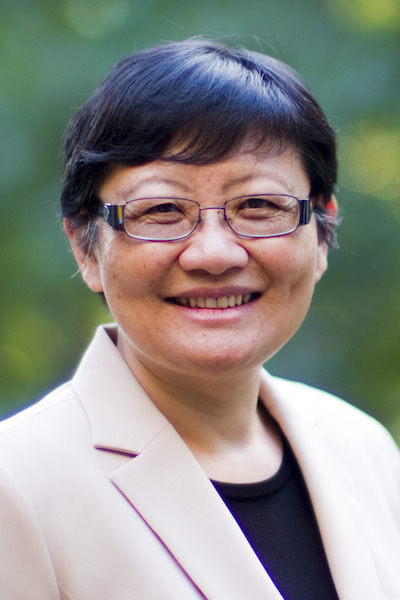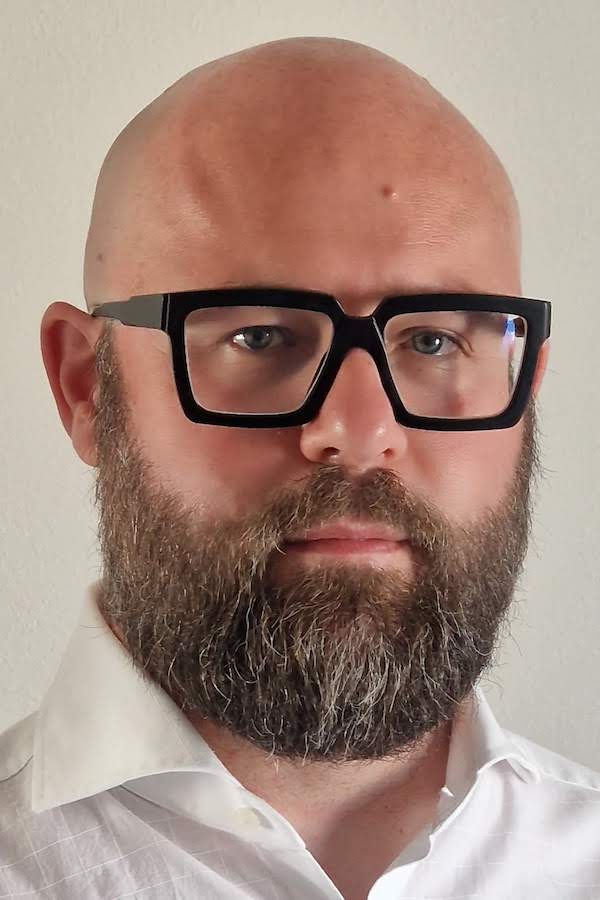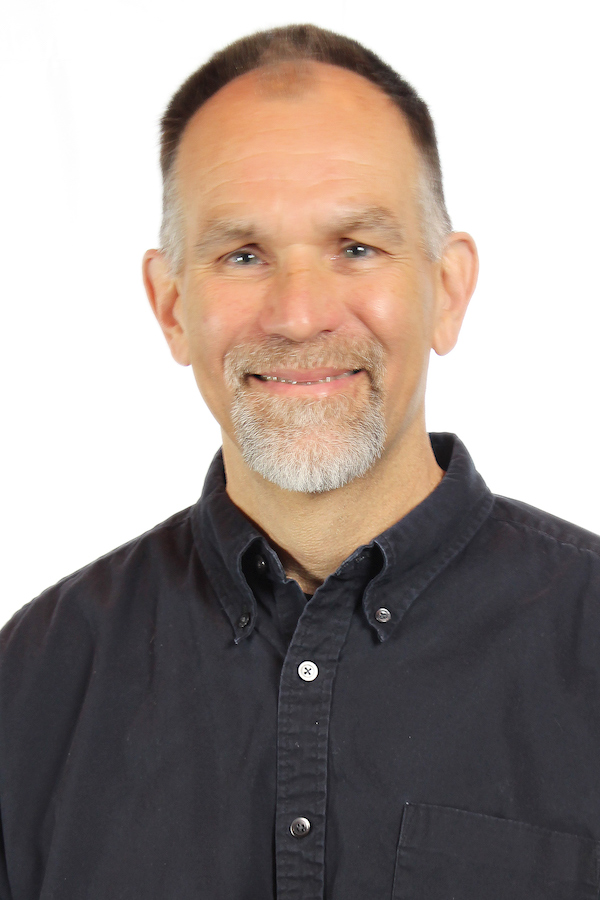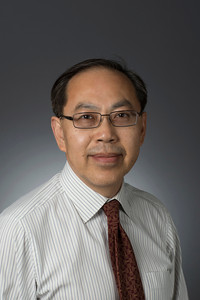
cdkan@gmu.edu
Room 2113
703‒993‒5898
Dr. Cing-Dao (Steve) Kan, Professor and Director of CCSA
- Ph.D., Mechanical Engineering, University of Maryland 1990.
- Expertise in finite element analyses of solid objects and structures.
- Pioneering research on implementation of non-linear, explicit FE code on high performance parallel computer platforms and development of benchmarking criteria.
- Previously Director of the National Crash Analysis Center under contracts with FHWA and NHTSA that led to the development of ten FE vehicle models, multiple crash tests, outreach programs to support use of simulation methods, and studies of safety implications for future vehicle designs.
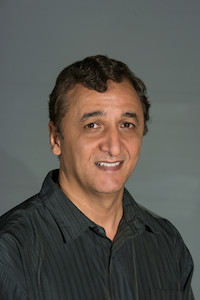
dmarzoug@gmu.edu
Room 2114
703‒993‒4680
Dr. Dhafer Marzougui, Associate Professor and Research Director of CCSA
- D.Sc., Transportation Safety Engineering, The George Washington University .
- Internationally recognized expertise in vehicle modeling, crash simulation, development and evaluation of infrastructure security hardware and impact testing.
- Led NCHRP projects to develop guidelines for effective placement of cable barriers on sloped medians of varying configurations and barriers on curved, superelevated roadway sections.
- Developed FE models of vehicles, barrier hardware, test “dummies,” and aircraft to simulate crashes and dynamic effects on occupants.
- Previously Associate Director of the National Crash Analysis Center.
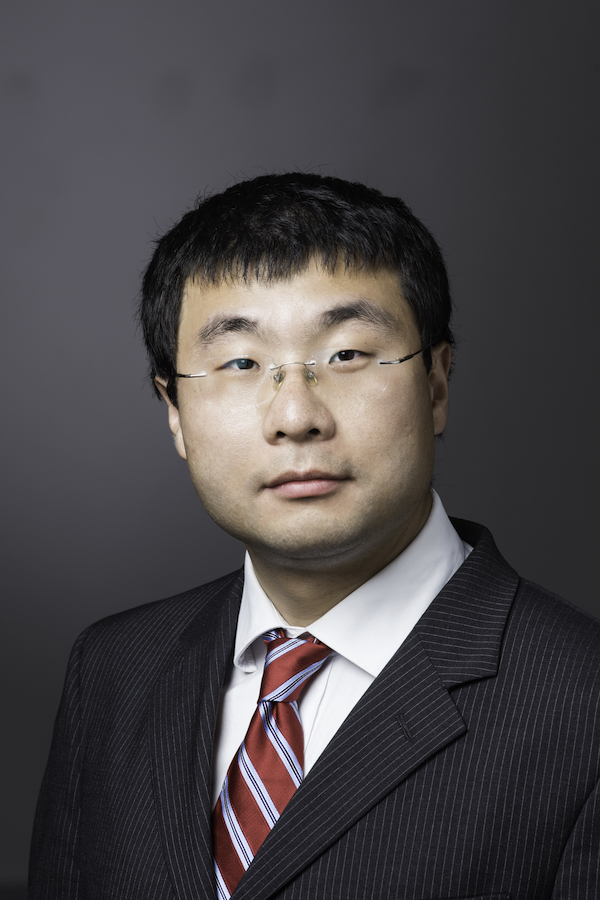
lwang28@gmu.edu
Room 2110
703‒993‒4659
Dr. Leyu (Douglas) Wang, Research Assistant Professor
- Ph.D., Mechanical and Aerospace Engineering, The George Washington University .
- Expertise in solid mechanics, fracture mechanics, molecular dynamics, and multi‐scale modeling.
- Developed tabulated input material models for aerospace engineering applications, including high velocity impact and failure prediction.
- Pioneering research in defining stress and strain for molecular dynamics analysis.
- Pioneering research in using energy‐based method for fracture mechanics simulation.
- Participate in research projects for vehicle crashworthiness modeling, simulation analysis, and structural optimization.
- Current research interests include constitutive modeling of metallic material, dynamic finite element analysis, theoretical molecular dynamics, multi‐scale modeling, and fracture mechanics for automobile and aerospace applications.
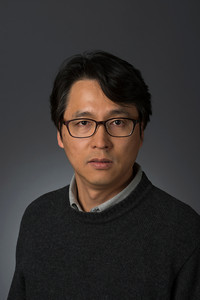
ckpark@gmu.edu
Room 2119
703‒993‒4595
Dr. Chung-Kyu Park, Research Assistant Professor
- Ph.D., Transportation Safety Engineering, The George Washington University 2010; BE & ME Naval Architecture.
- His research led to an improved method for Generalized Mesh-Free (GMF) approximation and investigations of its dispersion property.
- Studied crash compatibility issues at SAFER – Vehicle and Traffic Safety Centre, Gothenberg, Sweden.
- Broad experience in the training and application of LS-DYNA at Korea Simulation Technology.
- Simulated dynamic effects on ship structures at Korea Maritime University.
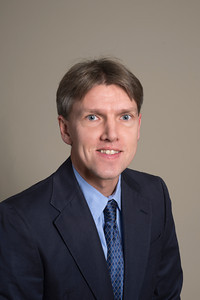
reichert@gmu.edu
Room 2125
703‒993‒4565
Rudolf Reichert, Research Assistant Professor
- Advanced engineering degrees from universities in both Germany and the USA.
- Expertise in the development of occupant safety systems from roles with Mercedes and other automotive firms.
- Considerable experience in linking simulation and testing to develop occupant protection systems and validate effectiveness.
- Developed integrated vehicle model for comprehensive occupant safety analyses over a broad set of impact types and conditions.
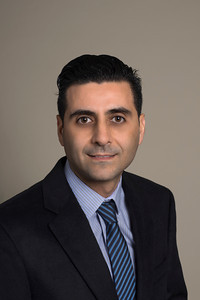
tahan@gmu.edu
Room 2120
703‒993‒4633
Dr. Fadi Tahan, Research Assistant Professor
- D.Sc., Transportation Safety Engineering, The George Washington University .
- Research endeavors have focused on modeling vehicle rollovers for establishing protocols for dynamic rollover assessment, understanding influences of highway features on vehicle crashworthiness, and perform crash data analysis using NASS CDS.
- Experience in developing and applying FE models in the automotive industry in Detroit (2005–2009).
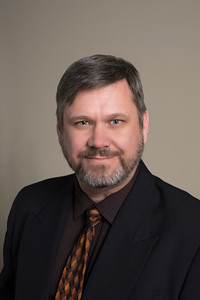
dbrown29@gmu.edu
Room 1007
703‒993‒4614
Dan Brown, Research Associate and Manager of CCSA Vehicle Digitization Lab
- B.A., Journalism, California State University of Sacramento.
- Manages the Vehicle Modeling Lab which used reverse engineering processes for development of seven FE vehicle models.
- Expertise in reverse engineering, automotive design, and FE geometry and meshing and material characterization.

jmader2@gmu.edu
Room 2123
703‒993‒4619
Jason Mader, Computer Systems Manager
- B.S. and M.S., Computer Science, The George Washington University.
- Expertise in network, storage, and administration of high performance computing systems.
- Optimized systems for simulation workflow, customized software and operating system installation, granular configuration, and focused on systems availability to minimize the interruption of long running computer simulation tasks.
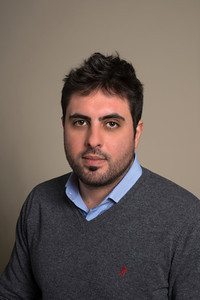
sdolci@gmu.edu
Room 2106
703‒993‒4672
Dr. Stefano Dolci, Research Assistant Professor
- Ph.D., Engineering Physics, George Mason University; M.S., Aeronautical Engineering, Politecnico di Milano (Italy).
- His research led to an improved method to simulate adiabatic shear bands using meshes with element size suitable for real applications through tabulated regularizations of the material model Taylor-Quinney coefficient.
- Expertise in the areas of computer simulation of structures, mathematical and analytical modeling, and testing for crash analysis.
- Considerable experience on development and evaluation of infrastructure security hardware and impact testing.
- He has supervised various tests at the Federal Outdoor Impact Laboratory.
- Current research interests include modeling of metallic material for aerospace applications, methodologies to enhance crash safety in autonomous vehicles, vehicle dynamics and perimeter security.
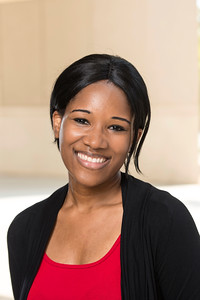
ctellis@gmu.edu
Room 2100
703‒993‒4694
Cheriden Tellis, Administrative and Student Support
- B.S., Psychology, University of Mary Washington.
- Prior to working with CCSA, she worked as an administrative assistant for the Prince William Campus Executive Office of George Mason University.
- Has worked for the University of Phoenix as a resource specialist.
- Completed a recruiting/human resources internship with the Walt Disney Company in Orlando, Florida in 2008.
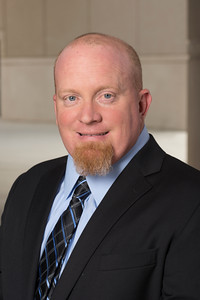
cstory2@gmu.edu
TFHRC FOIL
Christopher Story, Senior Test Technician
- Joined the Federal Outdoor Impact Laboratory in 2002, currently as the Senior Accredited Test Technician.
- Expertise in preparing test vehicles and installing accelerometers, gyros, strain gauges, string pots, and data acquisition systems on vehicles and barriers for crash testing.
- Experience in project management, such as installation of roadside and perimeter security barriers.
- Responsible for maintaining and operating NAC high speed imaging and Messring vehicle propulsion systems.
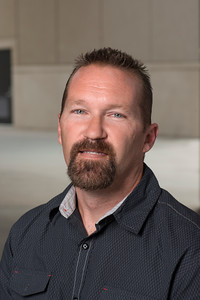
mmosser@gmu.edu
TFHRC FOIL
Michael Scott Mosser, Test Technician
- Joined the Federal Outdoor Impact Laboratory in 2004, currently as the Accredited Test Technician.
- Expertise in fabricating, machining, and welding fixtures for full scale and component crash testing.
- Experience in preparing test vehicles and installing accelerometers, gyros, strain gauges, string pots and data acquisition systems on vehicles and barriers for crash testing.
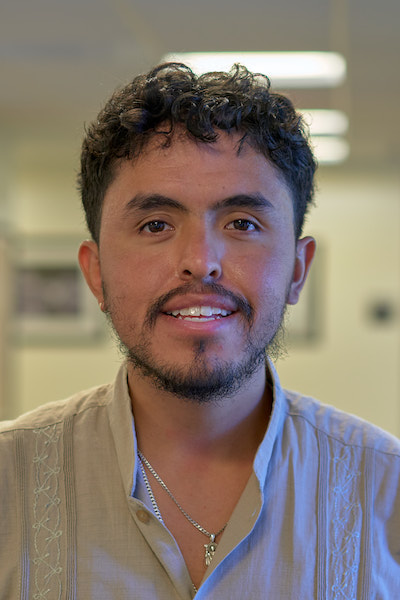
karellan@gmu.edu
Room 2114
Kevin Arellano‐Moya, Research Scientist
- M.S., Applied and Engineering Physics and B.S., Mechanical Engineering, George Mason University.
- Assisted in the development and validation of FE vehicle models for 2020 Nissan Rogue and 2022 Hyundai Accent.
- Developed FE model of Google Waymo vehicle for battery EV research.
- Developed FE bicycle model at CCSA.
- Assists in managing the Vehicle Modeling Lab to develop public domain FE vehicle models.
Affiliated Faculty
Dr. Chi Yang, Professor, Physics and Astronomy
- Ph.D., Naval Architecture and Ocean Engineering, Shanghai Jiao Tong University 1988.
- Modeling and simulation for marine hydrodynamics and aerodynamics applications.
- Developing computational tools for simulation-based design optimization of ship hull forms.
- Multi-physics modeling and simulation for blast and structure interaction, thermal-electrical-mechanical coupling, lithium-ion battery impact analysis, and EV crash analysis.
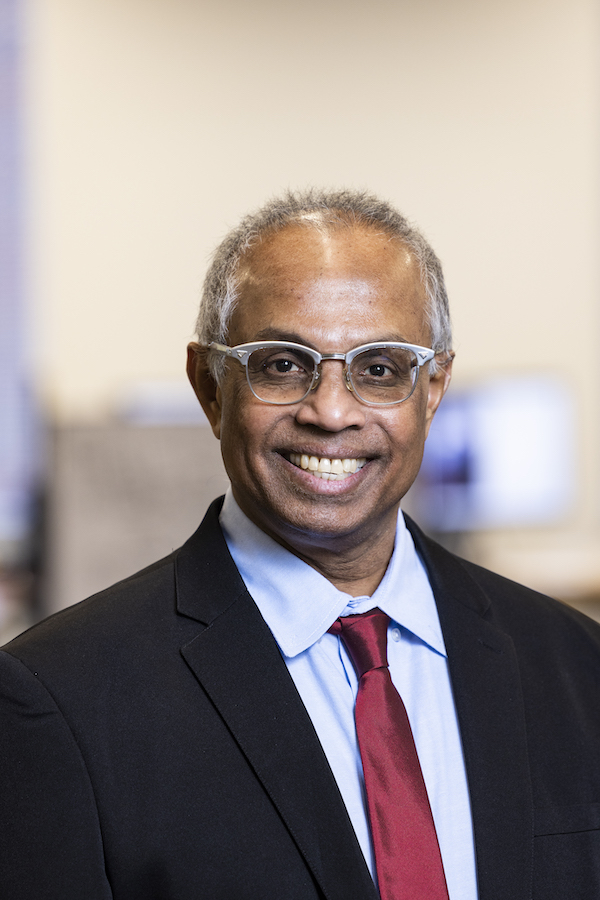
dwijesek@gmu.edu
436 Research Hall
703‒993‒1578
Dr. Duminda Wijesekera, Professor, Cyber Security Engineering
- Ph.D., Computer Science, University of Minnesota 1997; Ph.D., Mathematical Logic, Cornell University 1990.
- Security and safety of cyber‐physical systems.
- 5G and its applications including air, ground, satellite communications and their applications for intelligent transportation systems.
- Secure Manufacturing Automation.
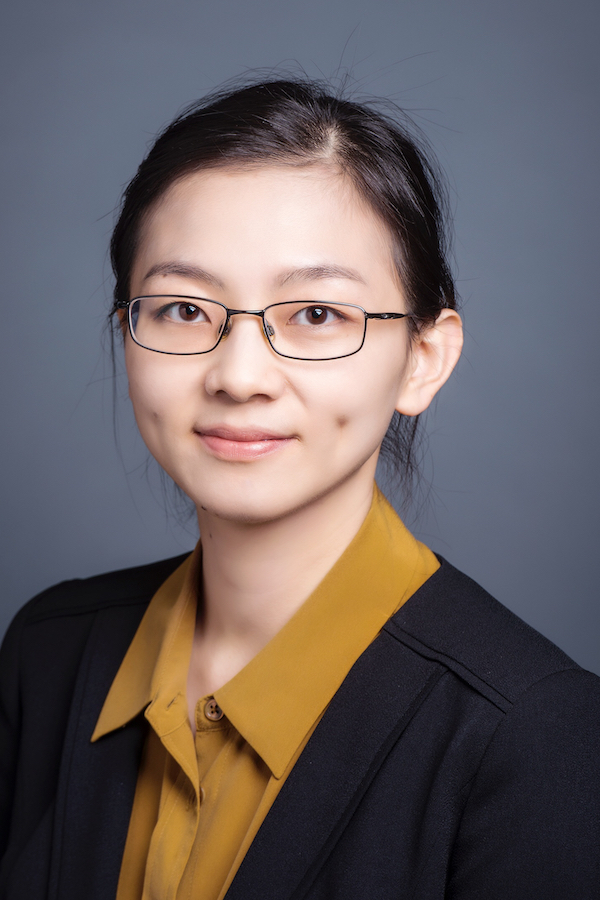
pdong3@gmu.edu
4453 Nguyen Engineering Building
703‒993‒5974
Dr. Pei Dong, Assistant Professor, Mechanical Engineering
- Ph.D., Mechanical Engineering, Rice University 2013.
- Advanced material characterization and modeling.
- Battery modeling.
- New material development for renewable energy.
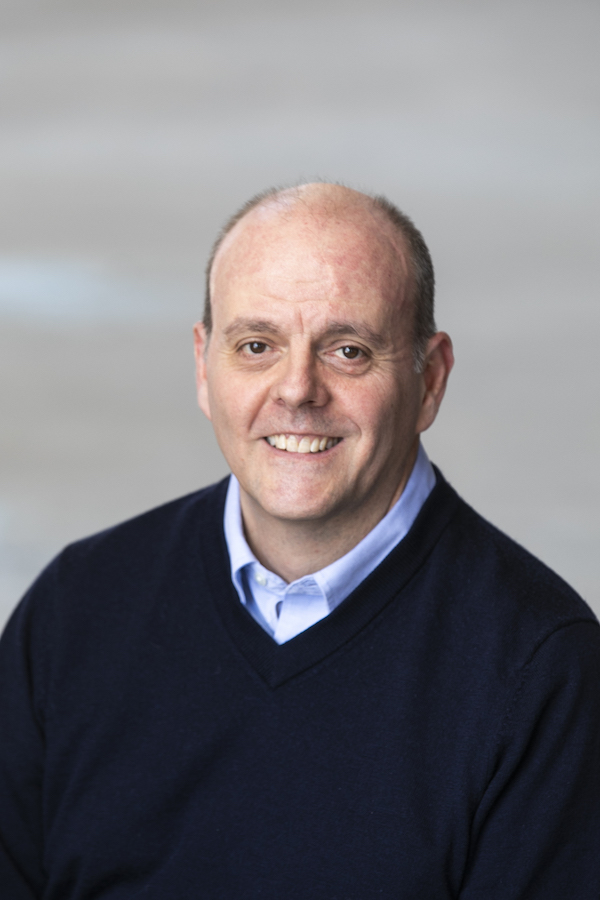
fcamelli@gmu.edu
101C Planetary Hall
703‒993‒4073
Dr. Fernando Camelli, Associate Professor, Physics and Astronomy
- Ph.D., Computational Sciences and Informatics, George Mason University 2002.
- Modeling Time‐Dependent Inflow Boundary Conditions.
- Developing cutting‐edge algorithms to automate the extraction of complex geometrical data, including buildings and intricate terrains.
- Studying energy efficiency and ventilation of underground transportation systems, and channels and tunnels in sewage systems.
Dr. Luca Biagini
- Ph.D., Civil and Environmental Engineering, University of Florence 2008.
- Extensive experience in using finite element analysis for highway safety performance.
- Developed in-service evaluation for highway safety devices.
- Experienced in roadside safety system design installation.
- Developed roadside hardware management systems for highway safety.
Dr. Kelly Carney
- Ph.D., Engineering Mechanics, Case Western Reserve University 1997.
- Extensive experience in finite element analysis for high velocity impact.
- Expertise in developing material models of metals, foam, thermal plastics, and composites for impact applications.
Graduate Students
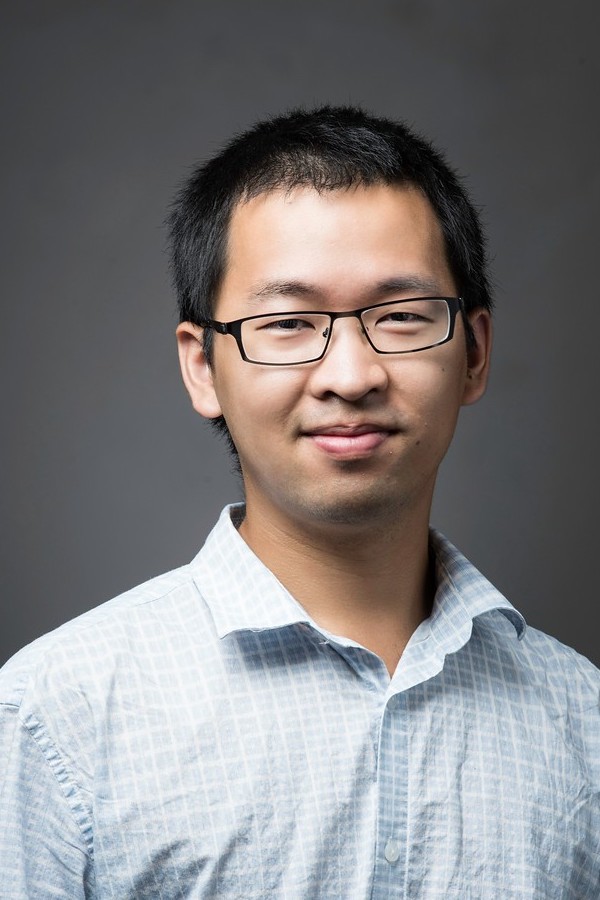
Room 2132
Chenxi Ling, Graduate Student
- M.S., Mechanical Engineering; B.S. Automotive Engineering.
- Developed thermal‐electrical‐mechanical coupling battery models for impact applications.
- Developed generic EV model with active battery cells and performed EV impact simulations and analysis.
- Instructor of physics labs in Physics and Astronomy Department.
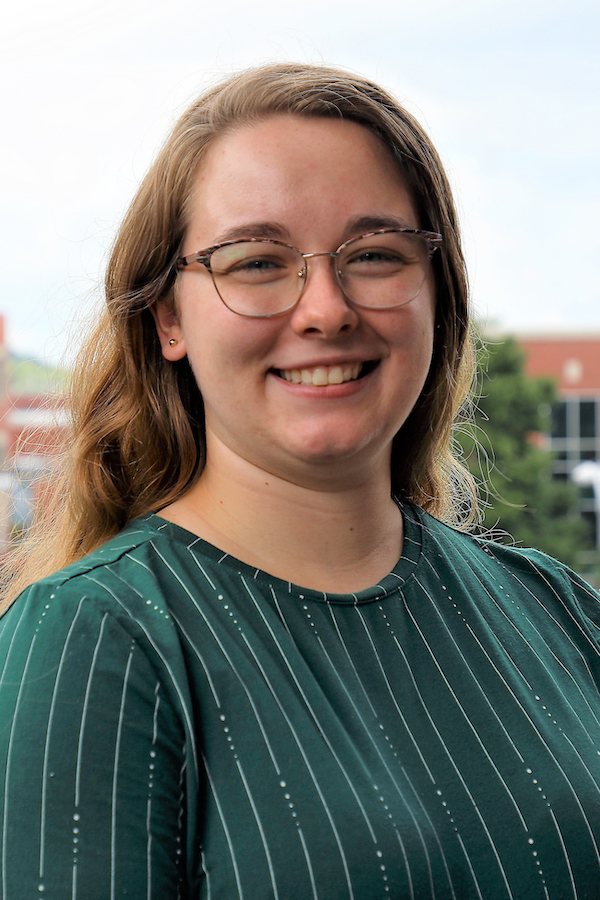
Room 2115F
Kelly M. Richardson, Graduate Research Assistant
- B.S., Engineering Science and Mechanics, Virginia Tech.
- Ph.D. student in Engineering Physics concentration.
- Current research interests are in mechanics of materials and finite element analysis.
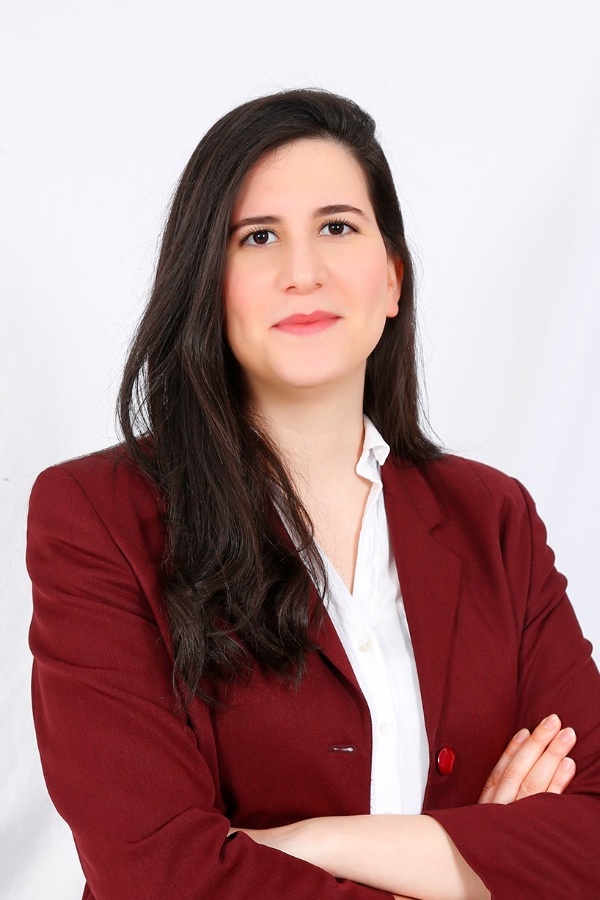
Room 2115C
Arij Mkhinini, Graduate Research Assistant
- B.S., Technology Management, University of Stuttgart.
- M.S. student in Engineering Physics concentration.
- Current research interests are in mechanical engineering, design, and simulation.
